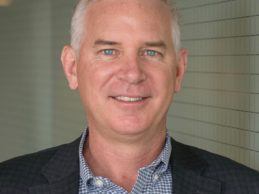Here’s what we know from decades of research: Hearing loss affects health and well-being, but people with hearing loss are often reluctant to wear hearing aids. Of course, they’re doing themselves no favors. But when they do finally opt for hearing assistance (on average, about seven years after they learn they need it), we also now know that the longer people wear hearing aids — throughout the day, for instance, rather than just in certain situations — the healthier they tend to be. Better
Read More
Fitness Trackers
Patient Data & Decentralized Web: The Key To A Healthier Future?
Interoperable data and IT systems in healthcare has long been an enigma - many have tried to tackle the challenge, but until now very little has changed. A truly interconnected network that brings together the infinite number of siloed systems used in healthcare services around the world, and even within the same county, has remained elusive. And so too has patient access to their own data. Considered by some as two distinct problems, however in reality the answer to both is the same: web 3.0
Read More
4 Ways Businesses Will Adapt Their Healthcare Landscape
The coronavirus pandemic has affected every aspect of our lives, from how we work to how we get our health care. The crisis has put the creativity of many small businesses to the test after being forced to move operations online once social distancing became the norm. As economies reopen, many aspects of our life that changed in response to the virus will likely return to the way they were.
However, we have the opportunity to emerge stronger from this crisis if the salient shortcomings from
Read More
Q/A: Xealth’s CEO Talks Preparing for the Digital Health Avalanche
Xealth’s CEO and Cofounder Mike McSherry explain how healthcare systems can leverage the right data with the right digital health tools.
There’s no
doubt the swell that is big data has been building for some time. However, the
question of how useful and all that data will continue to plague healthcare
providers. The overwhelm of information is real, but so is the potential for providers
to make actionable use of it, according to tech innovators.
With doctors now prescribing more than
Read More
Top 4 Disruptions Healthcare Providers Should Prepare to Address
The past few years have been particularly interesting for the healthcare landscape. We’ve seen a surge in telemedicine and retail clinics, increasing use of personal healthcare devices such as watches and fitness trackers, aggressive attempts to dismantle the ACA, the growing influence of private equity investment firms, and massive mergers with disruptive enterprise market entries such as Amazon. As the ground beneath them continues to shift, many providers are venturing into new territory to
Read More
Welldoc Awarded 8th FDA Clearance for Bluestar Medical Device for Diabetes
What You Should Know:
Marks 8th FDA clearance for BlueStar, the only
reimbursable software as a medical device for diabetes that integrates with all
of a patient's existing devices.
Welldoc, revolutionizing digital health with the first FDA-cleared Software as a Medical Device (SaMD) for diabetes, announced today that the U.S. Food and Drug Administration (FDA) has cleared an additional feature for the digital health product BlueStar Rx which supports individuals using long-acting
Read More
National Health IT Week: Embracing Non-Clinical Data Insights for Improved Patient Care
There’s a crispness in the air that marks fall’s arrival. But autumn’s appearance isn’t the only thing on calendars across the U.S. this week: September 23-27 marks National Health IT Week. The 2019 theme focuses on supporting healthy communities, and what better way to support communities than to learn more about the people in them?
Decision-makers who analyze healthcare data have a habit of focusing on numbers, pouring over pages of claims and diagnostic codes. Yet disease diagnoses are often
Read More
How Consumer Technology is Influencing Healthcare Innovation
When it comes to healthcare, we look to physicians, nurses, and specialists and trust them to be the experts when it comes to our health, but we don’t typically look to them to be technology experts. In fact, the healthcare industry, especially the back office, has been historically slow to adopt new technology, relying on paper records and pagers, fax machines and even hand delivery of files and records. Many clinics are not equipped to digitally connect to another office’s patient records.
Read More
71% of Consumers Would Use Health Monitoring Devices If Data Was Clinically Accurate
71 percent of adults would use a personal health monitoring device if it was clinically accurate, according to a national survey of 1,000 respondents commissioned by The Society for Participatory Medicine and healthcare technology company Biotricity Inc. The survey reveals that more than 8 out of 10 consumers (84 percent) believe that tracking their own health data with a clinically accurate health monitoring device will help improve their overall health.
“Americans are tremendously in favor
Read More









